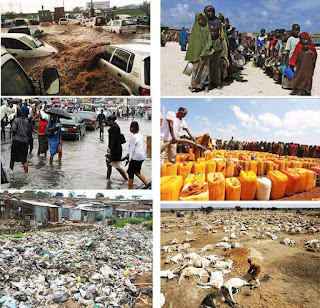Key Facts
"If the bee disappeared off the surface of the globe, then man would have only four years of life left. No more bees, no more pollination, no more plants, no more animals, no more man" Elizabeth Lawrence
In a colony, there are 10,000 to 60,000 bees!
It takes a bee 10,000,000 trips to collect enough nectar to make 1 pound (0.45 kg) of honey.
Beekeeping in Kenya has been practiced traditionally for many years, however, only 20% of the country's honey production potential has been tapped. This is roughly about 100,000 metric tons. Source: National Farmers Information Service(NAFIS).
Kenya produces approximately 7300 tonnes of honey every year, 700 less than what Tanzania produces according to the United St(USAID).
A farmer can collect 20 to 30kgs of honey per harvest from Langstroth as opposed to the traditional log hives which fetch between 10 to 15kg- NAFIS
A kilo of honey in Kenya fetches between Sh400 to Sh1000 depending on the location. This means farmers can earn Sh30000 per harvest with one Langstroth beehive as compared to Sh10,000 with the traditional beehive.
In a colony, worker bees are about 60,000 in number, drones are approximately 300 and there is only one queen whose function is to lay fertile eggs and keeping the colony together
Kenya consists of arid and semi-arid lands which have high potential in the production of honey.
However, this ripe apple waits to be plucked. By who? You and me.
The word ‘apiculture’ comes from the Latin word ‘apis’ meaning bee. So, apiculture or beekeeping is the care and management of honey bees for the production of Nectar, Honey, Beeswax, Pollen, Propolis, Royal Jelly, Bee Venom and Bee Bread. In this method of apiculture, bees are bred commercially in apiaries, an area where a lot of beehives (Kenyan Top Bar Hive or Langstroth) can be placed. Apiaries can be set up in areas where there are sufficient bee pastures – usually areas that have flowering plants.
Uses and Importance of Bee Products.
1. Honey. the most valuable nutritional food and medicine.
2. Bees wax: Used in cosmetics industries, polishing industries, pharmaceutical industries, etc.
3. Bee Venom: mixture of proteins which can potentially be used as a prophylactic to destroying the HIV virus that causes AIDS in humans.used in apitherapy, against bee sting
4. Bee Pollen: Health supplement.
5. Propolis: high in medicinal quality, used as health supplement and cosmetic
6. Royal jelly: used for asthma, hay fever, liver disease, pancreatitis, type 2 diabetes, diabetic foot ulcers, sleep troubles etc
7. Bee breaded: food source.
Bees require little capital and land to keep. You need the skills, hives, harvesting equipment and land. Nothing more.!
Farmers can purchase the Langstroth beehive from African bee keepers at the cost of Sh5000 per hive. The hive is normally fitted with beeswax to attract bees.
In setting up an apiary farmers should consider availability of water within a three kilometer radius. Flowers should also be present as they contain nectar, a sweet liquid secreted by flowers which is an important ingredient in the honey making process. The apiary should be free from disturbances, noise and free from human beings and animals. It ought to be in a sheltered place protected from strong sun and wind.
Keep a limit, of not more than 20-25 hives per apiary depending on availability of bee plants and water sources. If if you want to keep more than 25 hives, find another site at least 3km away from the existing one.
Langstroth bee hives are the best bet for farmers who like to venture into bee keeping as a business as it improves production of honey.
I would recommend you to consult with experts in Apiculture, like MYEXPERTSHUB.CONSULTANTS to help you set up and manage your dream apiary.
Reach us on:
+254740537387/+254720091000. Email. myexperthubs@gmail.com. website: www.myexpertshub.blogspot.com










